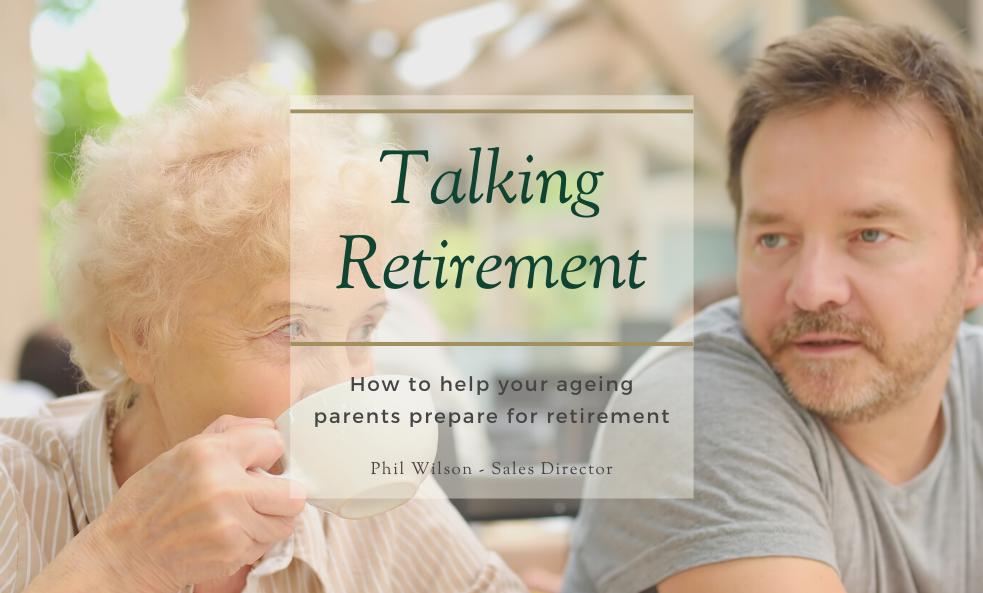
How to help your ageing parents prepare for retirement
Few of us have had “the talk” – that discussion we should all have with our parents about where they want to live when they get older. And what arrangements to be made – moving to a retirement village with healthcare and frailcare facilities or a nursing home – should they become frail or incapacitated.
Having a rational, caring chat about their aspirations and practical options is far preferable to one held under pressurised and rushed circumstances when the big decisions have to be made very quickly.
This has become ever more of an issue since life expectancy has started to rise. According to the Institute for Health Metrics and Evaluation, globally people are living longer, thanks in part to lower rates of cardiovascular disease deaths in high-income countries.
The trend is certainly true for South Africa, where life expectancy among the middle class is now 79 for men and 83 for women.
There is also an increase in the number of elderly people. It is expected that this group will double in size, from almost 8% currently to over 15% by 2050. And by the end of the century, almost a third of the population will be over the age of 60.
As a society, we’re going to have some serious decisions to make on retirement, long-term care and healthcare over the next ten years. Many of the elderly have prejudices against retirement but their benefits far outweigh these sentiments: companionship and community, 24-hour care, support and peace of mind.
For those of us who have been caring for our parents who are now on the hunt for a retirement home, it is of course one of the biggest decisions they will have to make and they need to ensure that whichever option they choose is a sustainable one.
Aware of the pressures that retirees are currently facing in an uncertain residential property market, Evergreen Lifestyle Retirement, reveals a few key features that could help guide their retirement decision-making.
The choice of where to live during retirement does not bear only physical or financial considerations – there are also many psychological pressures and aspects to retirement.
In addition to facing these decisions, it’s likely that they will find themselves facing at least one of the five biggest fears around ageing.
1. Vulnerability to crime and violence
Physical security is the biggest priority to residents of retirement villages, so most villages have perimeter walls, electric fencing and CCTV cameras to ensure strict access control, along with control rooms that are manned 24 hours a day. Some offer regular external safety and security audits conducted by independent contractors to identify when upgrades may be required.
2. Outliving retirement funds
It is important for retirees to ensure their savings are able to support them throughout their retirement years. Should they face a financial emergency at any point during their retirement, it may be possible for the management of a retirement village to release a portion of the capital that had originally been used to acquire the life right in order to fund levies and care costs. The capital amount repayable to the retiree or their family at a later stage is adjusted accordingly.
3. Loss of dignity
Growing old comes with fears that one will not be treated with the same care and respect as when we were younger and able-bodied. This fear is often a motivator for retiring in the family home and having family look after the retirees. Most villages offer high quality health care with the utmost dignity, offering a wide range of health-related services including regular clinics, home-based care, 24-hour nursing and recuperative care, occupational therapy, frail care and palliative care. Registered, experienced nurses and therapists are available at many care centres.
4. Isolation and loneliness
Having experienced the restrictions due to the Covid-19 lockdown, now more than ever, the elderly have realised the importance of a sense of community. Lifestyle centres were the drawcard that created a sense of village life – an area where residents were able to spend time socialising, dining or joining social clubs and special interest groups. These spaces usually include a games room, library, indoor heated pools, gym and entertainment area to keep residents healthy, engaged and busy.
5. Being unable to physically maintain a home or lifestyle
Getting older goes hand-in-hand with slowing down. Retirees no longer want the responsibility of maintaining, painting and landscaping a property and they are concerned about who will help with the everyday activities of cooking and shopping. At retirement villages there is a professional approach to managing all these aspects for retirees so that hospitality and support is a given.
This is why it is important for seniors to find a retirement solution that addresses these key concerns and offers support for life. In the end, it’s our role as children to make our parents feel comfortable talking about their future responsibilities and quality of life – and it’s far easier to do so in the comfort of their own home than in an emergency scenario, when our thoughts are otherwise occupied.
Download our eBook – ‘Good Enough for Mum’ that is packed full of helpful information to assist you and your parents in their retirement years.



